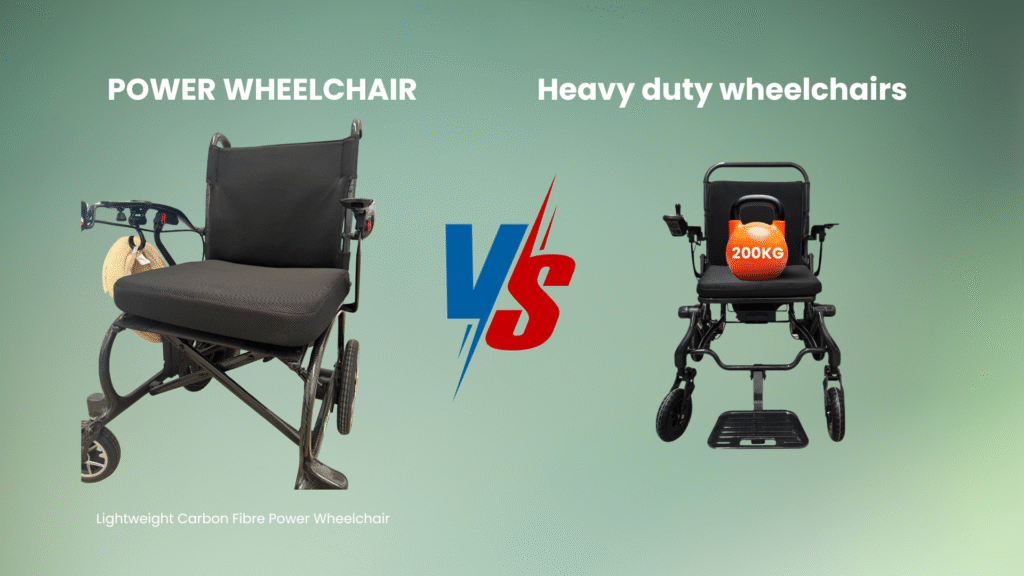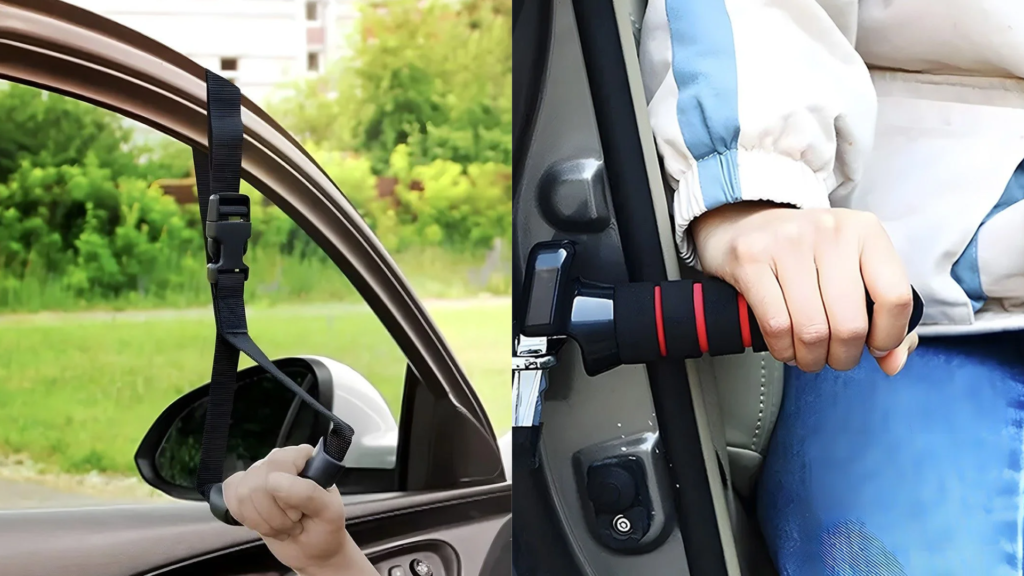Choosing the Right Wheelchair
What Are Lightweight Wheelchairs?
Lightweight wheelchairs are designed for portability, ease of handling, and travel. They are typically made from aluminium or carbon fibre materials, making them easier to fold and transport.
Advantages of Lightweight Wheelchairs
- Easy to fold and transport for travel or vehicle storage
- Simple for caregivers to lift and maneuver
- Ideal for daily use indoors and short outdoor trips
- Folding Carbon Fibre Wheelchair options for extra portability
- Compatible with NDIS funding for eligible participants (NDIS electric wheelchair)
Limitations of Lightweight Wheelchairs
- Less durable for long-term heavy use
- May not support higher weight capacities
- Limited stability on rough terrain
- Fewer accessory options compared to heavy-duty models
What Are Heavy-Duty Wheelchairs?
Heavy-duty wheelchairs are built for durability, stability, and higher support needs. They are suitable for seniors or NDIS participants requiring more robust assistance, including daily outdoor use or long-term support.
Advantages of Heavy-Duty Wheelchairs
- Can handle higher weight capacities and frequent use
- More stable on uneven surfaces and outdoor environments
- Compatible with advanced features like Carbon Fibre Power Wheelchair and fully automatic reclining options (Fully Automatic Reclining Power Wheelchair)
- Supports additional accessories for comfort, e.g., Wheelchair Cushion and batteries
Limitations of Heavy-Duty Wheelchairs
- Heavier and harder to transport
- Less suitable for frequent vehicle storage or travel
- May require more effort for caregivers to lift or maneuver
Key Considerations When Choosing
- Mobility needs: Daily indoor vs outdoor use
- User weight and stability requirements
- Transport needs: Folding for vehicle use
- NDIS eligibility and funding
- Comfort accessories: Cushions, batteries, and powered options (Wheelchair Battery)
Popular Options in Australia
- Carbon Fibre Electric Wheelchair – lightweight, travel-friendly
- Folding Power Wheelchair – ideal for everyday portability
- Fully Automatic Reclining Power Wheelchair – heavy-duty, high comfort
- Battery and cushion accessories enhance usability and comfort (Wheelchair Cushion)
Conclusion
Choosing between a lightweight or heavy-duty power wheelchair depends on lifestyle, mobility level, and support requirements. Lightweight models excel in portability, while heavy-duty wheelchairs provide stability and durability. Combining NDIS-approved devices with proper accessories ensures safety, independence, and comfort for seniors and other users.
Explore Our Store | Enquire About Products
Frequently Asked Questions
1. What is the main difference between lightweight and heavy-duty wheelchairs?
Lightweight wheelchairs are portable and easy to fold; heavy-duty wheelchairs are stable, durable, and suited for higher support needs.
2. Can lightweight wheelchairs be used outdoors?
Yes, but they may be less stable on rough terrain compared to heavy-duty or carbon fibre wheelchairs.
3. Are electric wheelchairs NDIS-funded in Victoria?
Many NDIS electric wheelchairs and power wheelchairs are eligible for funding for eligible participants.
4. What accessories improve wheelchair comfort?
Cushions, batteries, foldable trays, and powered reclining options enhance comfort and usability.
5. Which wheelchair is better for travel?
Lightweight or folding carbon fibre wheelchairs are ideal for vehicle storage and travel due to portability.



